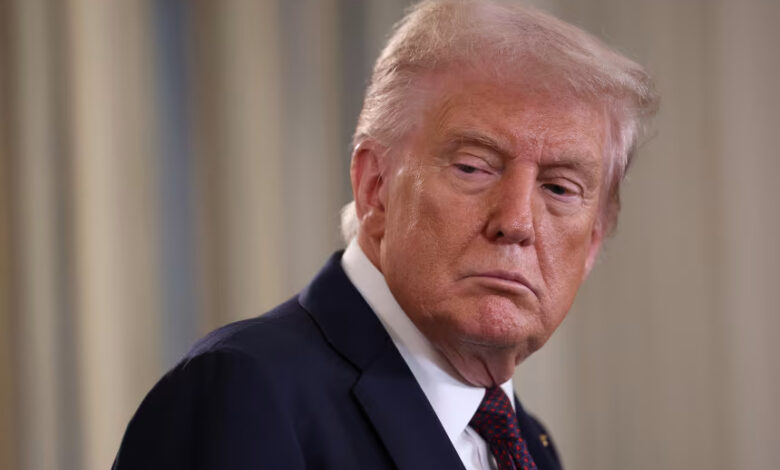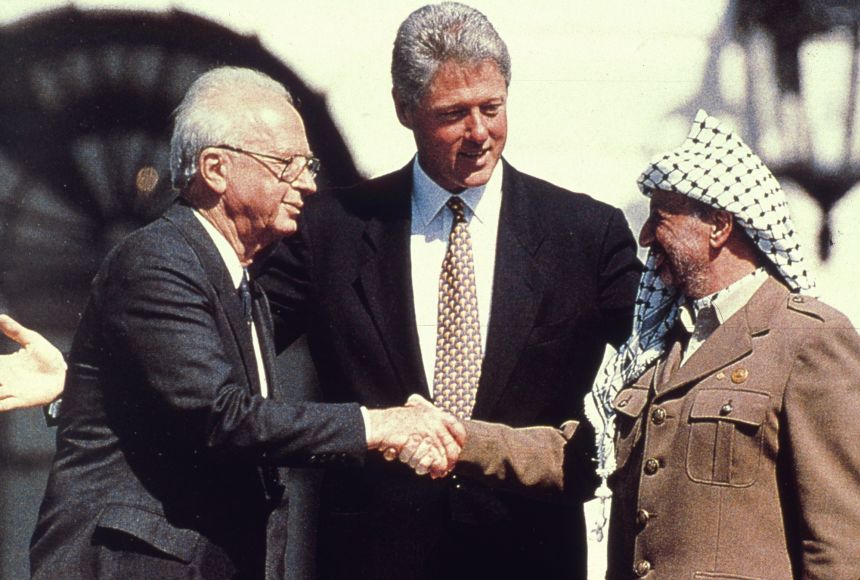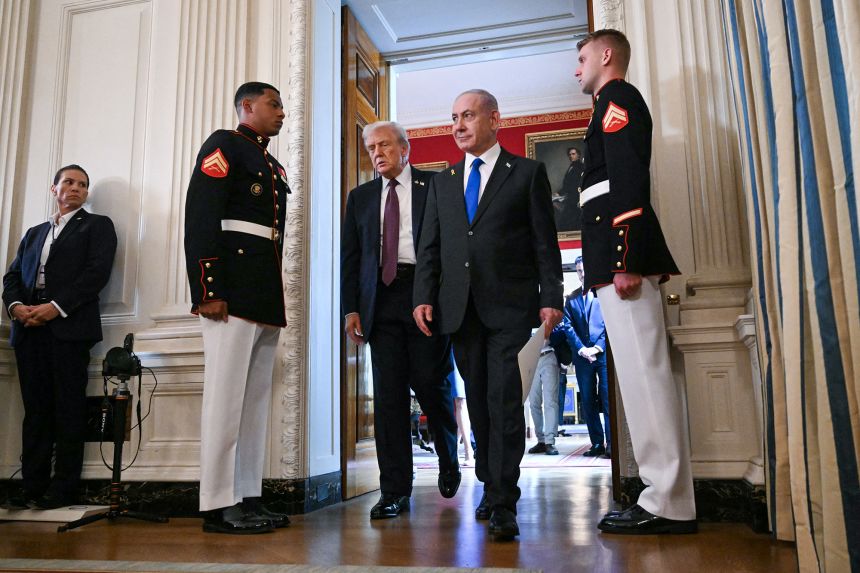
The hype was classic Trump.
“We have a real chance for GREATNESS IN THE MIDDLE EAST,” the US president posted in all caps on his Truth Social account Sunday. “ALL ARE ON BOARD FOR SOMETHING SPECIAL, FIRST TIME EVER. WE WILL GET IT DONE!!!”
The next day, he announced that Israel had agreed to a 20-point American proposal to end the war in Gaza, arrange an exchange of Israeli hostages (living and dead) for Palestinian prisoners (living and dead), establish an internationally supervised administration for the battered enclave, and bring about a partial withdrawal of Israeli forces from Gaza, and, eventually, vague notions of “a sovereign Palestinian state alongside Israel, with secure, recognized borders.”
Going back decades, American leaders have rolled out grand schemes to the conflict, only to see them either collapse in catastrophe or fizzle out in disappointment and recriminations.
Following Israel’s 1982 invasion of Lebanon, President Ronald Reagan announced a “fresh start,” calling for the withdrawal of all foreign forces from Lebanon, a freeze on Israeli settlements, and Palestinian self-government in the West Bank and Gaza.
None of that happened.
Eleven years later, on a sunny September day in what was the White House Rose Garden, Palestine Liberation Organization leader Yasser Arafat and Israeli Prime Minister Yitzhak Rabin oversaw the signing of the so-called Oslo Accords, designed to set in motion an end to the Palestinian-Israeli conflict. An emotional President Bill Clinton solemnly declared “For too long, the children of Abraham have turned swords against each other. Today, at last, that changes.”

No, “that” didn’t change.
World leaders have rushed to applaud President Donald Trump’s complex Gaza plan. After two years of this brutal war that has been livestreamed instantaneously around the globe, hard would be the heart of whoever does not greet the chance to end the bloodshed with anything but relief.
No doubt Trump is basking in the glow of success.
Not so fast.
Hours after the Israeli delegation left the White House the Israeli daily Ha’aretz reported that when asked if he and Trump had “agreed to the establishment of a Palestinian state, Netanyahu stated unequivocally, “Absolutely not, that is not even written in the agreement.””
Already his coalition partners are snapping at Netanyahu’s heels for publicly accepting the plan. Far-right Finance Minister Bezalel Smotrich described the prime minister’s acceptance of the plan as “a resounding diplomatic failure, a willful blindness and a betrayal of all the lessons of the October 7 attack. In my view, it will all end in tears.”
Netanyahu may have been the image of confidence while on the grounds of the White House. Promises made in Washington, however, may be hard to keep when he returns to the boxing ring that is Israeli politics.

Hamas has yet to agree to the Trump plan. Israel hasn’t officially accepted it either, despite Netanyahu’s beaming smile standing next to Trump.
And above and beyond all that, the Trump plan ignores the elephant in the room, which beyond Gaza’s fate, is Israel’s settlement and occupation of east Jerusalem and the West Bank. Though Trump said on September 25 that Israel will not annex the West Bank, there is nary a mention of the other Palestinian territory in the latest proposal.
Every US administration since 1967 has shied away from pressuring Israel to stop – or reverse – its process of establishing settlements in occupied territory.
For decades, successive administrations have described these settlements as an “obstacle to peace.” It was a constant refrain from White House and State Department spokespeople that rang hollow as Israel charged ahead, creating settlements across the West Bank and east Jerusalem. The settler population in those areas has grown from just around 20,000 in the early 1970s to more than 750,000 today.
Trump recently vowed he will not allow Israel to annex the West Bank – something Israeli officials threatened to do after several countries recently recognized Palestinian statehood. Yet apart from the legal niceties, Israel has already, for all intents and purposes, taken over the territory. It controls movement within and into the West Bank, operates its own two-tier legal system (one for Israelis, the other for Palestinians) and is the ultimate authority there.
Trump is certainly not going to act to change these facts on the ground.
But it is these very facts that fuel the conflict. Anyone who has been to the West Bank and seen how Israeli security forces and settlers operate and often abuse the Palestinian population will quickly understand why Palestinians are so opposed (and often violently so) to Israel’s presence there.
Perhaps Trump’s 20-point plan for Gaza will bring an end to the war in Gaza. Perhaps it will signal the demise of Hamas. Perhaps it will enable the Palestinians of Gaza to rebuild their shattered lives. Perhaps it will reunite the Israeli hostages held by Hamas with their loved ones.
Greatness in the Middle East? Don’t hold your breath. The best one can cautiously hope for is a pause in the killing in Gaza.




